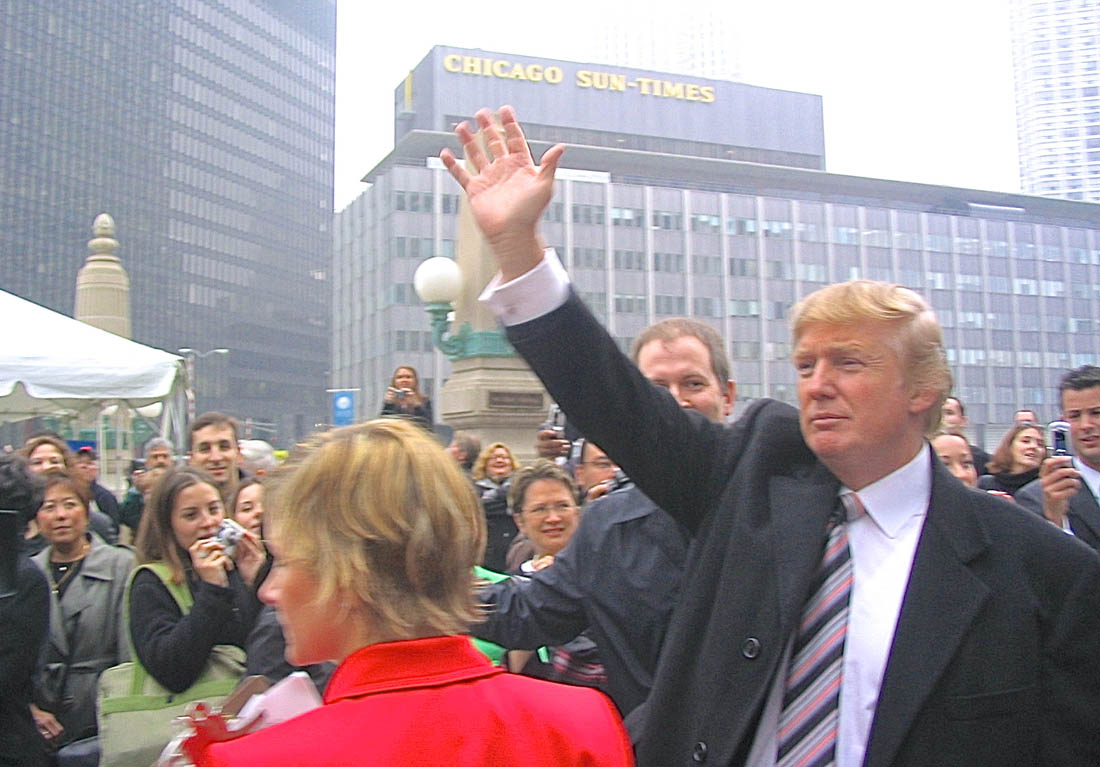Donald Trump won the GOP nomination in part because he spoke to Americans’ visceral fears about the economy while his rivals were reciting decades-old platitudes. But his “make America work again” lineup at the Republican National Convention on Tuesday night was a bust.
Trump's first economic speaker was Dana White, president of the Ultimate Fighting Championship. White described himself, accurately, as a “fight promoter.” He said he supports Trump because Trump supported mixed-martial arts fighting when “it was basically considered a blood sport” in the early 2000s. Trump hosted UFC fights when “arenas around the world refused to host our events,” White said. “He showed up for the (first) fight … and sat in the front row.”
“Donald Trump won the GOP nomination in part because he spoke to Americans’ visceral fears about the economy while his rivals were reciting decades-old platitudes.”
White didn't make any direct points about the economy. But one can assume that he was there to demonstrate that by being open to new ventures, Trump would help American businesses create jobs. The flaw in using MMA as such an example is that a nation that relies on a “blood sport” to create jobs is a desperate nation, not a thriving one.
Set aside, for the moment, the fact that MMA fighters suffer brain injury and other physical trauma. MMA jobs are not jobs. Teens and young adults don't aspire to make a decent living pummeling one another, they aspire to be super-rich and famous. Most will not succeed. They'll make a little money for a few years and then age out, physically and mentally debilitated even as they still need to make money.
To encourage kids to fight for a living is to encourage what one professor calls “a gambling mentality.” Too many boys and young men don't want to work steadily to achieve something. Instead, they “have no sense of vocation,” and are waiting for a big payoff.
Teachers have long fretted that too many young black students dream only of becoming football stars, and don't grasp that a more realistic goal is to aspire to a middle-class job. Now, white boys are absorbing the same lesson.
Having the GOP nominee for president endorse this thinking – and, just as damaging, with the rest of the party in his corner – will harm struggling young people, not help them.
Trump did have two small-business people speak: Andy Wist, who runs a waterproofing company in New York, and Kimberlin Brown, an actress who also runs an avocado farm in California.
Wist had nothing to say about economic policies that would help or hurt his business. Instead, he used his few minutes to remind everyone that, “Donald Trump is a builder.” A healthy real estate and construction industry, though, is a result of a healthy economy, not a cause of it. Real estate is a place for people to do other, more productive things.
Brown, in the course of making a compelling point about health-insurance costs, blithely said that “most of our employees are college-age and they're very healthy.” But if everyone who worked at a company were 22, with no medical needs, providing insurance would be easy. It is precisely because most people aren't 22, and do things like have babies and get cancer, that we have a problem of how to provide affordable health insurance.
On economy night, many of the convention speakers didn't speak of the economy at all. New Jersey Gov. Chris Christie spoke of Syria, Cuba, China and Russia – not once mentioning his own state.
That’s probably because his state is a fiscal and economic disaster. New Jersey has shut down basic roadwork, transit repairs and maintenance projects because state lawmakers and the governors refuse to raise the gas tax to pay for them.
Christie and lawmakers remain under the illusion that they can cut some other tax in return – although New Jersey needs tens of billions of dollars to keep from falling further behind.
Trump's son, Donald Jr., gave the strongest speech of the night. The younger Trump noted, for example, that “Dodd-Frank is a consumer protection for billionaires,” a good – and true – line about how President Obama and Hillary Clinton's approach to regulating financial firms only perpetuates the too-big-to-fail regime.
But the younger Trump didn't put the line in any kind of context. He didn't explain what the Dodd-Frank law is, or how Obama signed the law after the 2008 financial crisis. The nominee's son gave a state-of-the-union address, devoting one sentence to everything and nothing.
He did say, though, without irony, that American political and business leadership right now is “composed of a self-satisfied people at the top, our new aristocrats. We can't live that way any longer. It's too risky.”
In this political environment, this simple observation may be enough.
This piece originally appeared in City & State's NY Slant
______________________
Nicole Gelinas is a senior fellow at the Manhattan Institute and contributing editor at City Journal. Follow her on Twitter here.
This piece originally appeared in City & State's NY Slant
